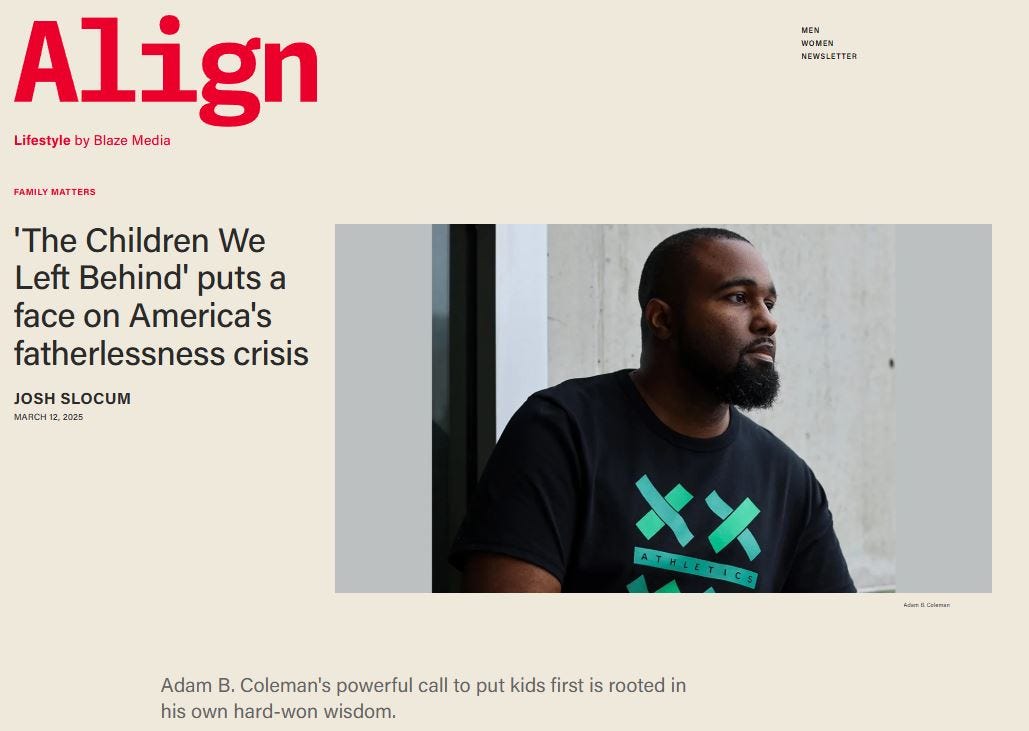Author
was my recent guest on Disaffected. He has a new book coming out in April, which I’ve reviewed for The Blaze. Here’s a teaser from the review, which you can read in full on the The Blaze’s site (no paywall).Think of that joke meme from "The Simpsons," the one in which a character asks, “Won’t somebody please think of the children?”
It pokes fun at the kind of people we modern Americans call “pearl-clutchers.” Whenever someone asks the question honestly — what is the effect of this music, this culture, on children? — our impulse is to smack it down with snarky comedy. After all, people who worry about what we’re doing to children are all prudes who really want to spoil our adult fun.
And anyway, what’s the big deal with obscene lyrics in rap and rock? That meddling old Tipper Gore was just a fuddy-duddy. Besides, it’s no big deal — kids are resilient!
No, they’re not. Children are not resilient; they are plastic, they are moldable, and they are vulnerable.
“Kids are resilient” is what self-centered adults tell themselves to justify their carousel of spouses and boyfriends, their quick divorces, their abandonment of their offspring to smartphones and the addiction of the internet.
Won’t somebody please think of the children? In his forthcoming book "The Children We Left Behind," Adam B. Coleman asks us to take this question seriously — and to answer it like the grown-ups we purport to be. As Coleman’s book shows, modern parents are handicapping their children for life through their solipsistic obsession with their own adult wants while leaving their children’s genuine needs neglected.
“As an abandoned child, I’ve watched the adults in the West make the family unit about themselves, solely hinging on the relationship success or failure with their spouse rather than being motivated for the betterment of their children,” he writes.





"Not because he 'turned out fine.' He didn’t turn out fine. He became a stronger man and a good father in spite of his childhood, not because of it."
Most people born into his type of situation don't "turn out fine" at all. They develop Cluster B personality disorders, they become addicts, they end up in jail. If they do marry or pair up, they're abusive or neglectful or both. They produce broken children. They can't hold down jobs. They live on the streets.
I don't know why some people manage to become reasonably functional adults after nightmare childhoods. God bless every one that can. And God help those who can't, which is the majority.
"'Divorce him — your kids need to see that their mother is happy,' we say to bolster our friends. Or, 'You need to live your best life, and it’s great for your kids to see a working mom in action!'"
Slay kweeen.
My narcissistic father was abusive. Not horribly so -- no beatings, no sexual dimension -- but the emotional abuse was very real. My mother stayed with him until we kids were well out of the house. When I was 40 (the oldest child), she finally left him.
I used to be angry with her for staying. "Why didn't you remove your children from this horrible situation?" I fumed to myself. Years later I've realized that she did the right thing. Because we had a father in the home, we could afford to live in a neighborhood full of functional adults, which set an amazingly good example for us. My mom stayed home to raise us, and having her there full time was a definite plus, because she had more influence on us than he did. My father did have his virtues -- he had a farmer's work ethic (having been raised on a farm), he raised a huge veggie garden to fill our pantry, he had no vices.
And I developed a healthy degree of self-discipline and respect for the rules, as well as the other strengths that a father provides to his children when he's living with them. My mother's skill set was secretary level, and if she'd split from him, we'd have lived in terrible poverty in bad neighborhoods, and we'd have borne the scars that a broken family inevitably inflicts.
So in our case, staying with my dad was the right thing for my mom to do. After she left, she didn't need to go into therapy or anything, because she'd been raised by normie parents, so she had a healthy baseline. We kids have had to deal with some minor stuff, but we're all functional adults. My three siblings married well and have raised functional kids. The cycle was broken by our generation.
(And yes, there are definitely cases where mom (or dad) needs to grab the kids and run, because the abusive parent is destroying the children's souls. If there's sexual abuse, if there's severe violence, if there's persistent substance abuse, if there's something else extreme, then the results of staying are worse than leaving.)
I'm grateful that with all their flaws, and the frequent unhappiness in their marriage, my parents stayed together and provided my brother and me with a more-or-less stable childhood.